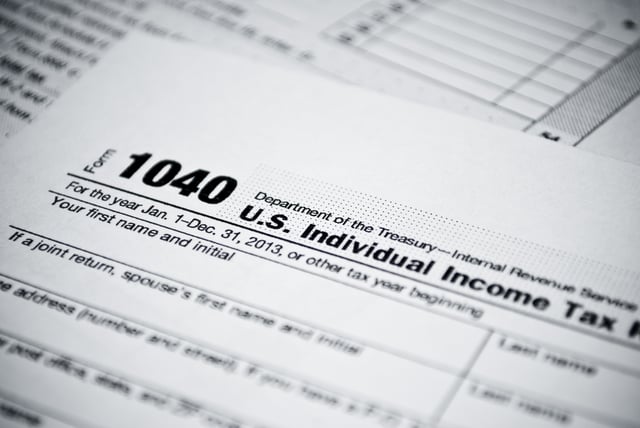Make the Most of your Mortgage Tax Deduction
- February 19, 2016
- Mortgage
- 0

If you are borrowing money to pay for a house, filing your tax return can be quite a struggle. With tons of different forms, guidelines and exceptions, the language of tax laws may seem absolutely foreign. In this blog, we will translate into plain English the rather complex guidelines of the mortgage tax deduction. Prospective homebuyers and longtime homeowners alike can benefit from understanding the tax incentives of homeownership.
Why Claim the Mortgage Tax Deduction?
If you’re a homeowner, your mortgage payment is probably a hefty one that drains you of a large portion of your income each year. Fortunately, Americans are reimbursed over $100 billion annually in interest they pay on their mortgages. When you claim this deduction, you can potentially deduct every single dollar you’ve spent on mortgage interest in the previous tax year.
What Qualifies as Mortgage Interest?
Usually, the IRS is extraordinarily specific in their definitions. Except when they’re defining the word “home.” According to the IRS, the word “home” is broadly defined as “a house, condominium, cooperative, mobile home, house trailer, boat, or similar property that has sleeping, cooking, and toilet facilities.”
Any interest you pay on a loan secured by a main or secondary home (third, fourth, etc. homes don’t count) is considered mortgage interest. These loans include:
- A mortgage you used to buy your home
- A second mortgage
- A line of credit
- A home equity loan
The loan must be a secured debt in order to qualify, or else it is considered a personal loan, which is not deductible. A secured debt is one that is guaranteed by collateral. In the case of a mortgage, it is a secured debt if your home is used as collateral in case you cannot pay.

Who Actually Gets to Claim the Deduction?
To claim the mortgage tax deduction, you must be the primary borrower of the loan. Primary borrowers are defined differently depending on the financial institution, so check with your bank to make sure you’re the primary borrower before claiming the deductible. One thing for certain is that if you pay your child’s mortgage to help them, you can’t deduct the interest unless you actually co-signed the loan when it was taken out.
Which Forms do I need?
When claiming the mortgage deduction, you have to itemize your tax return. This means you have to file the IRS 1040 “long form” and fill out Schedule A. Forms 1040A and 1040EZ do not provide a space for you to itemize deductions, so the long form must be used.
Any lender to whom you’ve paid mortgage interest within the tax year must supply you with a copy of IRS Form 1098, which tells you the amount in interest you paid. It also specifies how much you’ve paid in mortgage insurance premiums, which are also tax deductible.

How Much can be Deducted?
You can deduct all of the interest paid on a mortgage up to $1 million, or $500,000 if you’re married and filing separately from your spouse. Also, you can deduct the full amount of interest that was paid on a home equity loan of up to $100,000, or $50,000 if you’re married and filing separately.
How Does the Deduction Work?
The mortgage tax deduction, like other deductions, reduces your taxable income. So, for example, if you were to pay $10,000 in interest in a 35 percent tax bracket, your taxable income would be decreased by $3,500.
The lower your taxable income, the less you owe in taxes. To ensure that you provide accurate information for your tax refund, it’s recommended to seek the guidance of a certified professional accountant.








